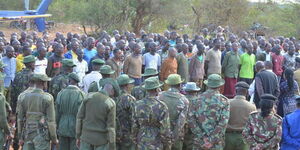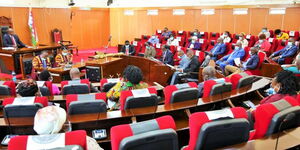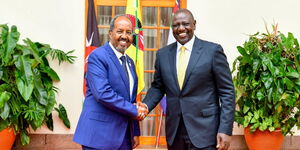Two American tech giants, Netflix and Meta, are locked in a legal dispute with the Maasai community in Kenya over a land agreement tied to a carbon credit project.
Meta is the parent company of popular social media platforms, Facebook and WhatsApp.
The dispute arises from a deal that allowed the two companies to participate in a carbon capture programme covering 4.7 million acres of communally owned Maasai land.
Carbon capture is the process of removing carbon dioxide (CO₂) from the atmosphere or preventing it from entering the atmosphere, thereby mitigating the effects of climate change.
In Kenya, there are several projects, and the Northern Kenya Rangelands Carbon Project uses traditional grasslands to trap carbon in the soil, generating credits sold to global corporations seeking to offset their emissions.
Under the agreement, the Maasai herders were to receive a share of the revenue from the sale of these carbon credits. However, disagreements have emerged over land use, particularly the herders' grazing and farming practices, which the conservationists argue may undermine the carbon sequestration goals – goals for companies to bolster the war against climate change.
According to a report by The Wall Street Journal, the conflict has prompted a halt in the project’s operations and could jeopardise the validity of carbon credits already sold to firms like Netflix and Meta.
The Maasai have used the same grazing techniques for generations without issue, but the Northern Kenya Rangelands Carbon Project wants them to "rotate livestock grazing so grasses can recover and lock more carbon into the soil."
Some herders frustrated with the rules have gone as far as to claim that they were misled when they originally agreed to participate in the conservation programme.
The case is currently under legal review in Kenyan courts, with the outcome expected to have significant implications for both international climate finance projects and indigenous land rights in the region.
Many tech companies rely on the purchase of carbon credits to help offset the negative environmental impacts of rapid technological development.
This is mainly because of the huge consumption of water and electricity, prompting the companies to consider projects that could help pull carbon from the atmosphere. This, in basic terms, helps the companies 'pay' for their sins against the climate.
Launched in 2012, the project spans 4.7 million acres and aims to sequester carbon through better land and livestock management in territories shared by Maasai, Borana, and other Indigenous pastoralist communities.
While the project has received widespread backing from conservation groups and corporate buyers eager to offset emissions, local herders argue it prioritises commercial carbon revenue over their traditional livelihoods.












